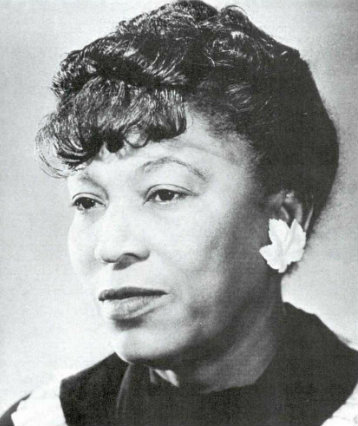Introduction
Integration of the public schools, required by the US Supreme Court’s decision in Brown v. Board of Education, was adamantly—often violently—opposed by many southern whites. But a few prominent blacks also took a dim view of forced racial integration. In this letter to the Orlando Sentinel, written on August 11, 1955 from her home in Eau Gallie, Florida, distinguished author and educator Zora Neale Hurston (1891–1960) offers a witty but biting critique of the court’s decision, in the name of “the self-respect of my people.” In a strong and proud voice, she rejects “the ‘tragedy of color’ school of thought,” emphasizing “growth from within” (as opposed to legislation from without) and educational quality and excellence (rather than integration and low-level equality).
Why does Hurston believe that forced integration is demeaning to blacks? Does she successfully defend herself against a charge that she is one of the “handkerchief-head-niggers . . . who sell out my own people out of cowardice”? What is the point of her tale of the “white mare”? Why is she worried by the rise of “Govt by fiat”? Could Hurston be right in thinking that integration by administrative decree could be bad for personal growth and educational excellence? Is integration really an unreasonable goal of a Civil Rights Movement?



Post a Comment